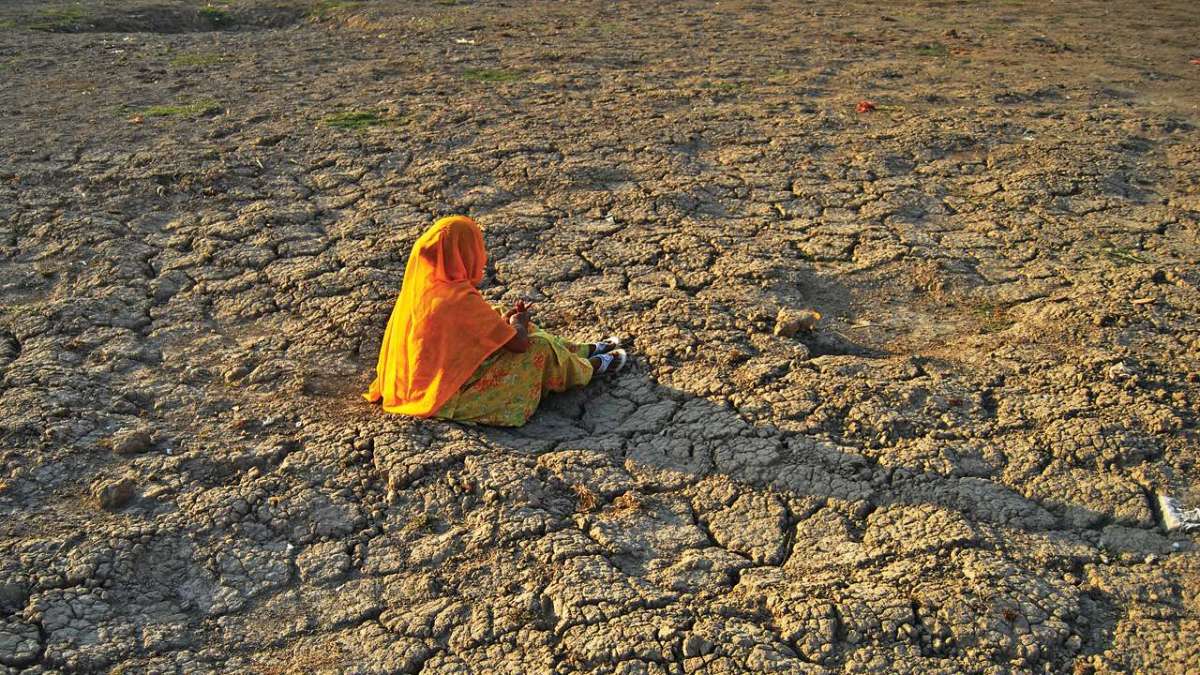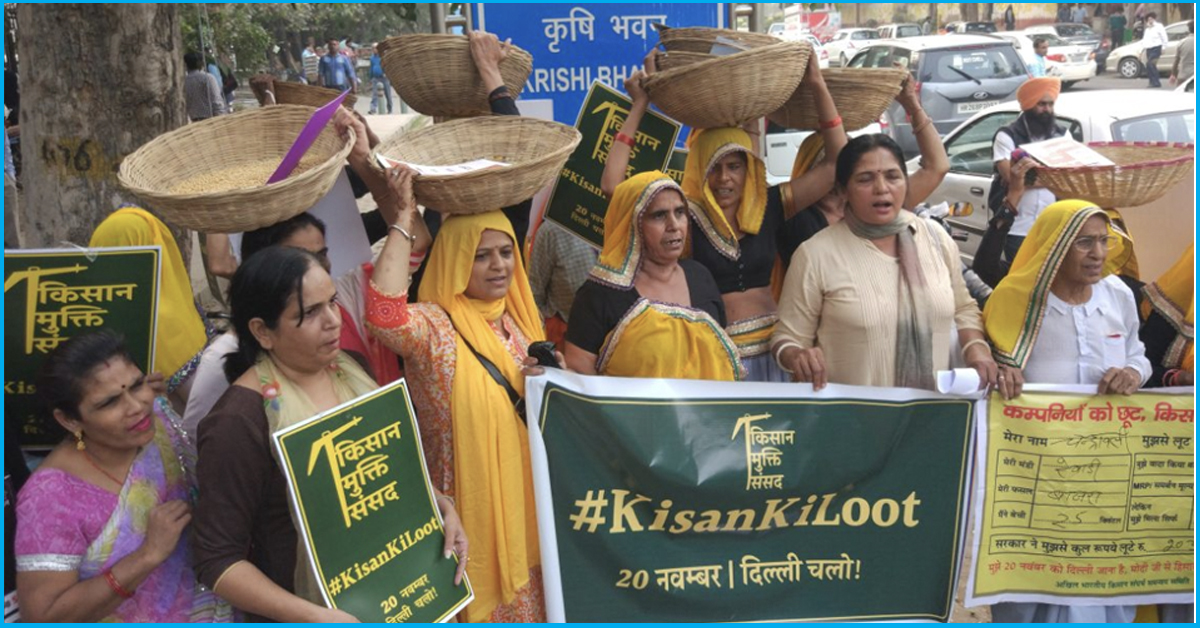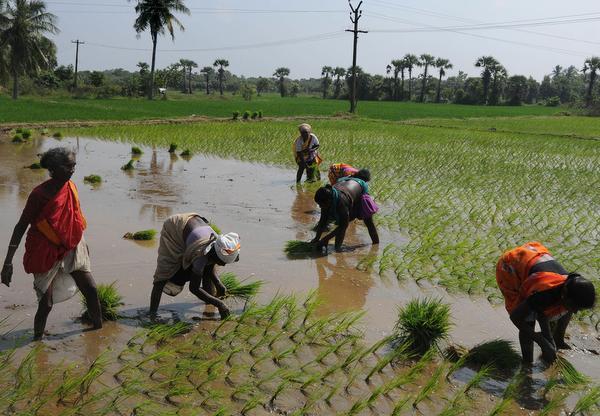From: Shiza Malik, Aug 10, 2017 in Dawn
It’s a sweltering June day in Muridke in Sheikhupura district in Punjab. The harsh summer sun glints off of the rice paddies which cover thousands of acres in this area. Some of the world’s finest Basmati rice is grown here. Dotting these paddies are the colourful figures of hundreds of women bent over the sodden earth, manually planting each seedling.
Razia Bibi and her daughters wade through the pesticide filled muddy sludge, which fills the field. They hold bunches of seedlings in one hand and use the other to swiftly place each plant into the earth at a specific distance. Doing this work for every summer of their lives has made their movements almost mechanical and working in large groups, they manage to transplant rice over large swathes of land each day. But, the land they work on is not theirs, neither is the rice they grow.
The working conditions are harsh; the water that fills the fields is full of leeches and corrosive chemicals. Each day someone in the group collapses from the heat. The wages are abysmal. But, Razia is a widow with six children, two of whom have polio. So in a place like Muridke, her options are limited.



